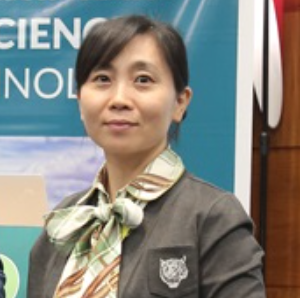Title : Milk bioactive proteins and their physiological functions
Abstract:
Milk is the basic food for infants and newborn animals, providing a rich source of proteins, carbohydrates, minerals, and vitamins. Milk also provides nourishment for people of all ages due to its abundant nutrients, and it is used in the manufacture of numerous health-related products. Milk contains caseins and whey proteins as the two major protein classes. Caseins fall into four major types known as αs1-, αs2-, β- and κ-casein, whereas whey proteins comprise a mixture of globular proteins including β-lactoglobulin, α-lactalbumin, serum albumin, lactoferrin, and other bioactivators. The various biological activities of these proteins are involved in preventing and treating numerous nutritional, physiological and metabolic diseases. Lactoferrin (lactotransferrin; Lf) is an iron-binding glycoprotein and one of the most important bioactivators in milk and other external secretions. It has numerous biological roles, including the regulation of iron absorption and modulation of immune responses, and has anti-microbial, anti-viral, antioxidant, anti-cancer, and antiinflammatory activities. Lf regulates the quantity of iron absorbed in the intestine via its role in iron transport and can also chelate iron, directly or indirectly. Early investigations focused on its iron-binding ability, which is involved in iron transportation and metabolism. However, since its anti-microbial properties were identified, recent studies have demonstrated that it can limit pathophysiological events associated with oxidative stress, inflammation and carcinogenesis. To date, Lf has displayed a broad range of preventive, therapeutic and biological activities. Lf can inhibit proliferation of several kinds of tumor cells, and it was reported that the increased oncogenicity of human cervical endometrium was related to down-regulation of Lf, accompanied by increased tumor cell proliferation. Lf has been proved to exert antitumor effects by inhibiting angiogenesis in a HT29 human colon tumor model. However, heat treatment affected the antitumor activity of Lf in a temperature-dependent manner. To date, Lf has displayed a broad range of preventive, therapeutic and biological activities Notably, it has been used as an adjuvant therapy for some intestinal diseases. It is now used in nutraceutical-supplemented infant formula and other food products.



